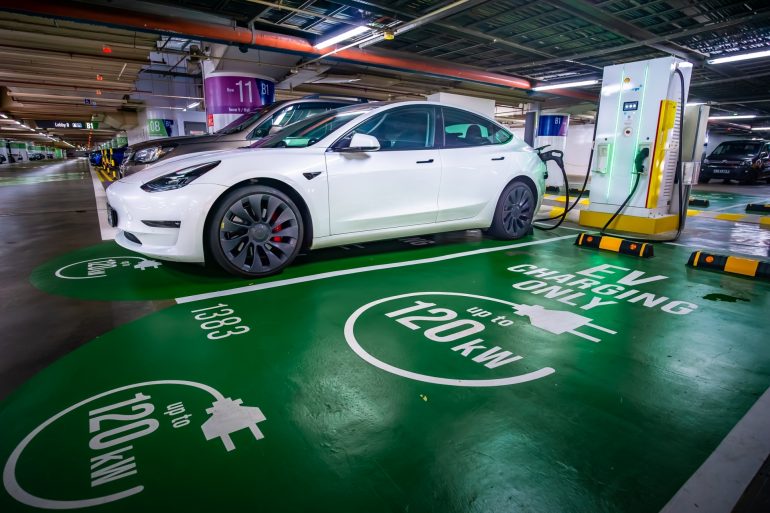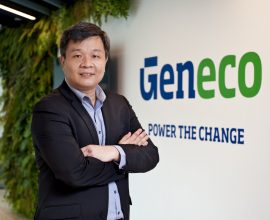The Electric Vehicles Charging Act 2022 or EVCA came into force on 8 December 2023.
Starting 8 December 2023, under the Electric Vehicles Charging Act 2022 or EVCA regime, all electric vehicle (EV) chargers must be type-approved by the Land Transportation Authority (LTA) and bear registration and charger-approval labels, which can be applied for via the OneMotoring website (https://onemotoring.lta.gov.sg/).
There will be a six-month transitional period from 8 December 2023 to 7 June 2024 where this is to take place, and from 8 June 2024, it will be an offence to use any unregistered EV charger.
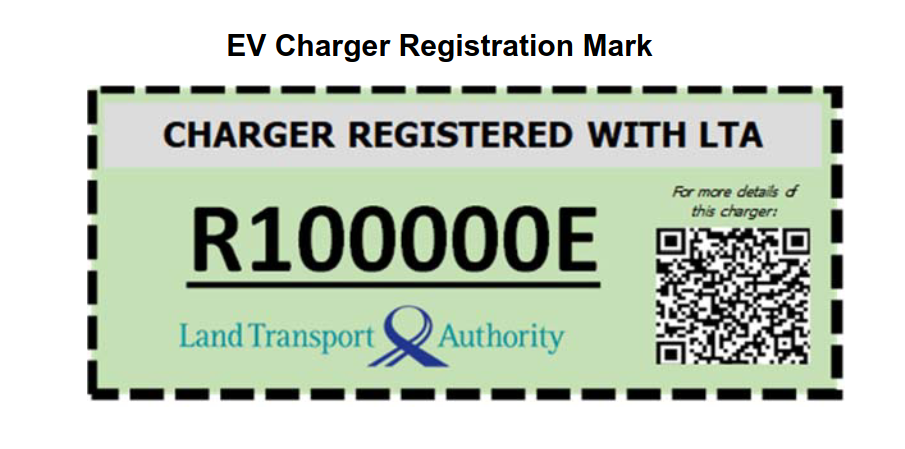

Landed property owners who’ve installed chargers for personal use are not spared either.
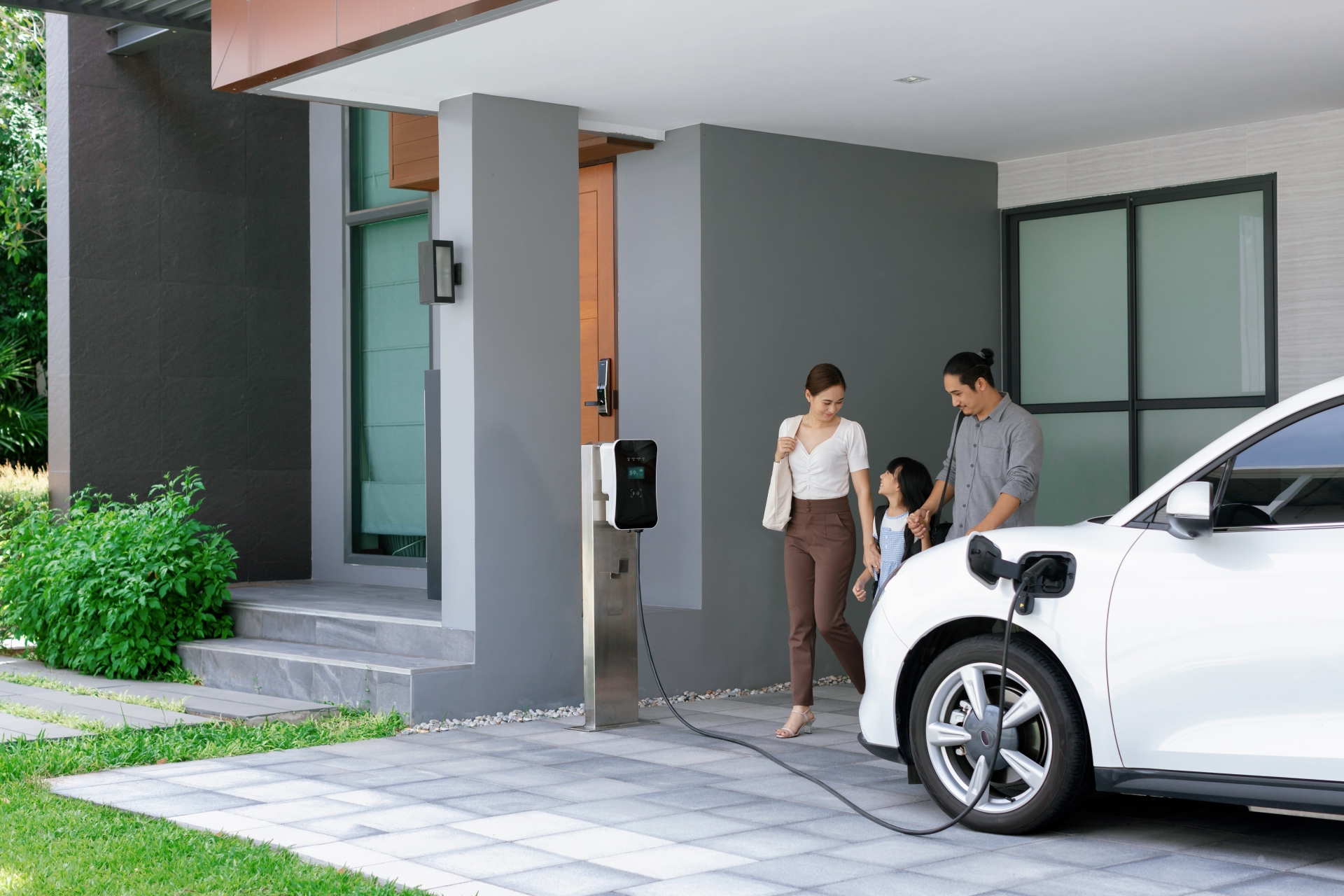
Here’s the breakdown of the one-time registration fee payable PER new EV charger.
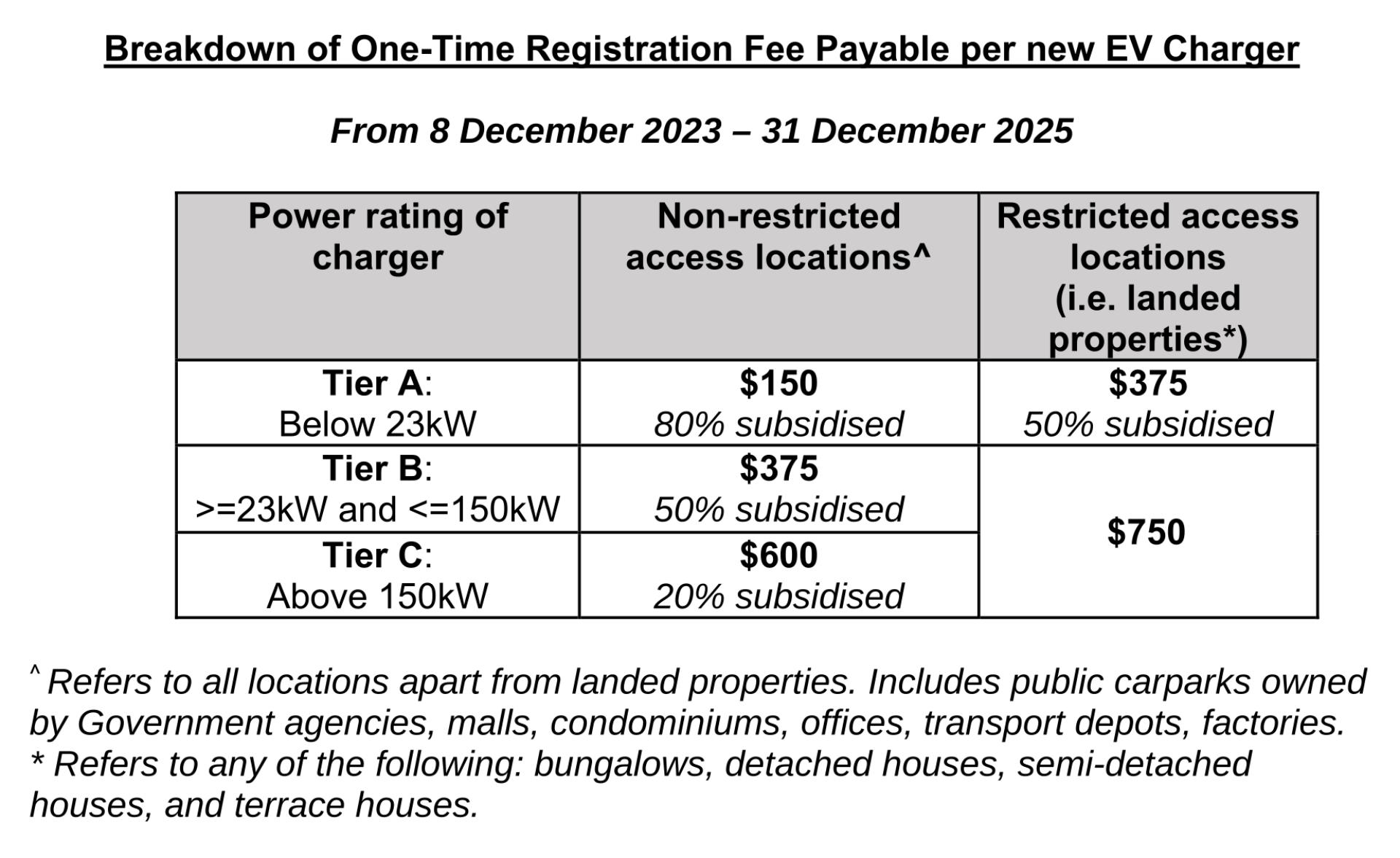
In other words, from 8 December 2023 to 31 December 2025, this is what the total regulatory fees payable for EV charger owners COULD look like.
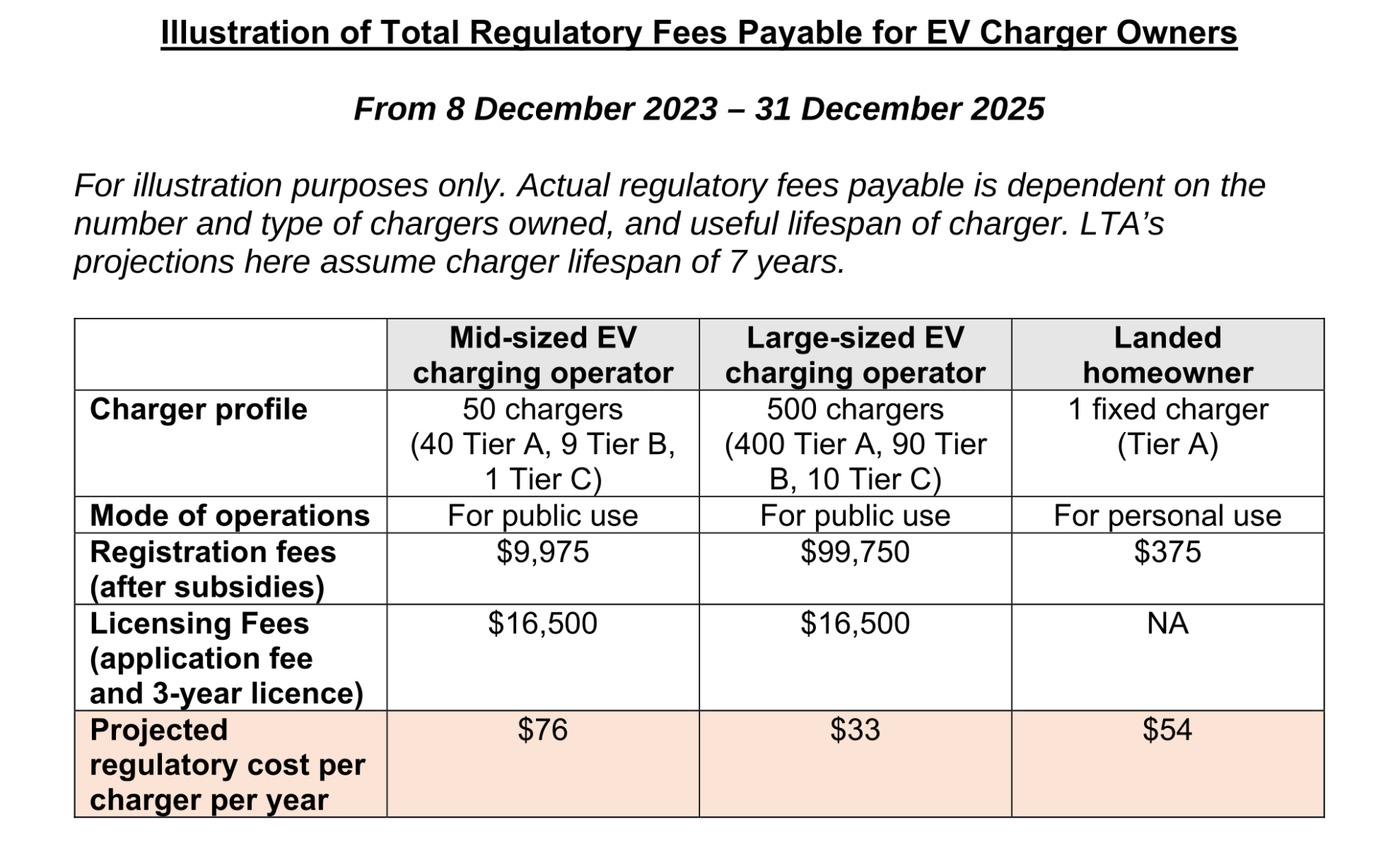
Owners who currently have one or more EV charger(s) that was/were installed before 8 December 2023 are required to provide LTA with their charger details to obtain a provisional ID for registration. Upon registration, LTA will issue a registration mark to the EV charger owner to affix onto the EV chargers, as proof of registration.
Existing EV chargers that were purchased and installed before 8 December 2023 are eligible for free registration if applications are submitted by 7 June 2024.
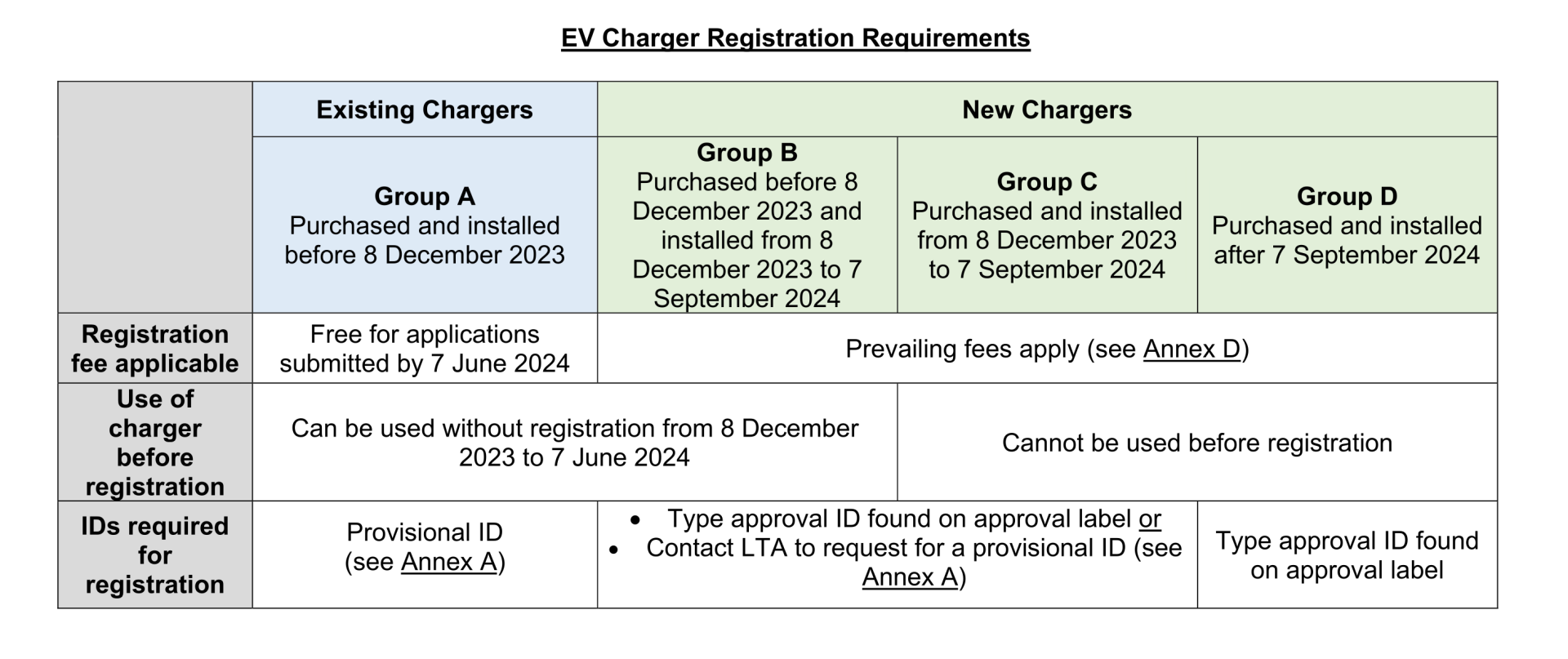
New EV chargers deployed from 8 December 2023 to 31 December 2025 will receive differentiated subsidies. New low-powered EV chargers which are shared and/or publicly accessible will benefit from higher subsidies and be subject to the lowest registration fee. See the earlier image of the breakdown of the one-time registration fee payable PER new EV charger.
Additionally, to ensure the reliability of the publicly accessible EV charging network, EV Charging Operators (EVCOs) will require a licence to provide EV charging services or operate EV charging stations. This will apply to all EVCOs that provide charging services to the public.
Excluded from such licencing requirements, however, are landed homeowners who operate chargers to charge their households’ vehicles, or fleet owners who operate chargers to only charge vehicles in their fleets.
Existing EVCOs can continue providing EVCO services for a transitional 12-month period until 7 December 2024, without a licence. All EVCOs will need to have a licence to provide EVCO services thereafter.
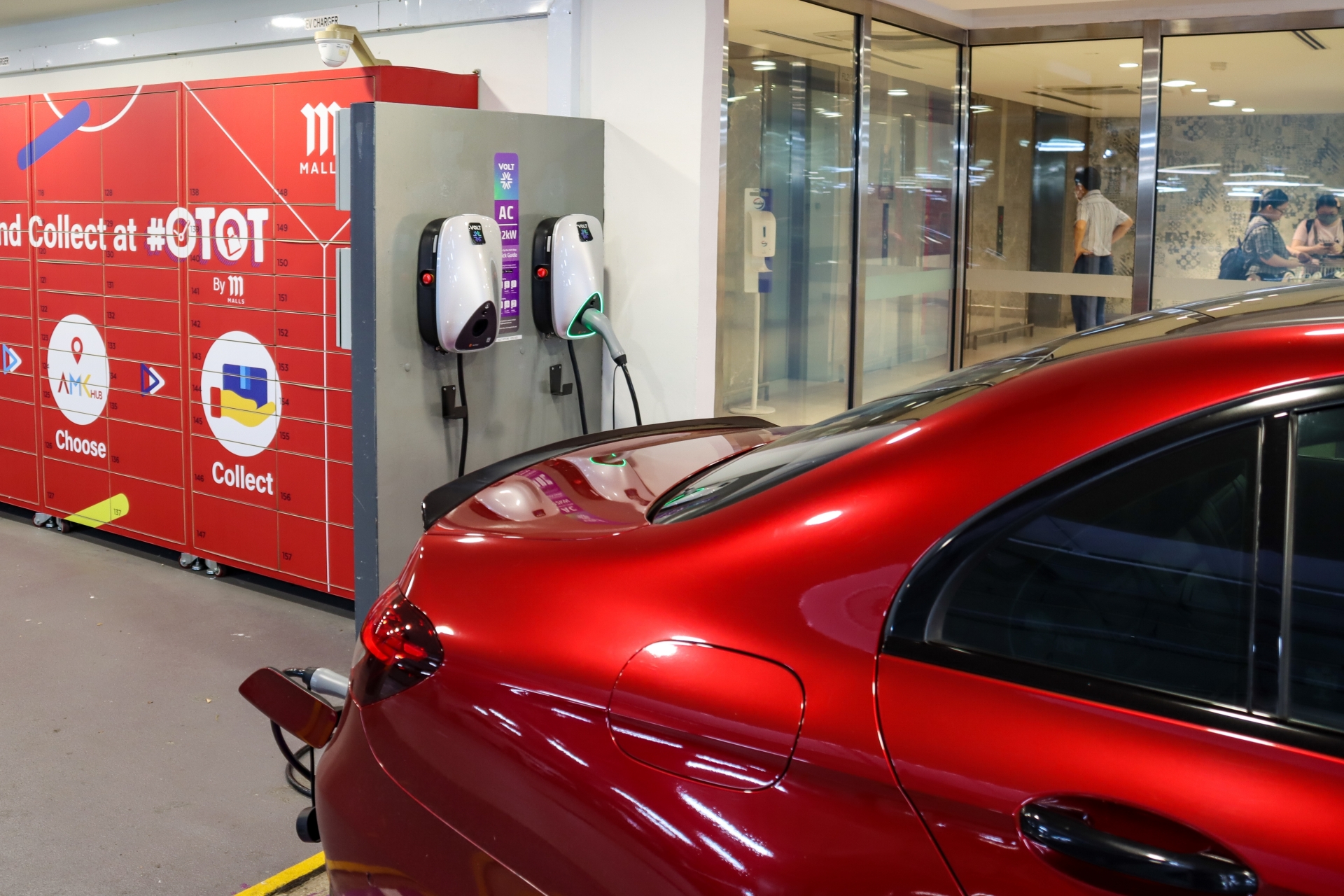
Since Singapore is also referred to as a FINE city, what are the penalties for non-compliance?
- First-time offenders found guilty of supplying a non-type-approved charger model may be liable to a fine of up to $40,000 and/or imprisonment for a term of up to 24 months.
- First-time offenders found guilty of charging an EV with an unregistered EV charger may be liable to a fine of up to $10,000 and/or imprisonment for a term of up to 6 months.
- EVCOs who operate without a licence from 8 December 2024 may be liable to a fine of up to $30,000 and/or imprisonment for a term of up to 6 months.
Refer to LTA’s factsheet for more information.

With all of these fees, and GST set to go to 9% in 2024, AND tacked on carbon taxes in all our energy bills, your guess is as good as ours as to how much and how fast charging rates may increase in the coming weeks and months.

Check out more green rides here, or check out our latest videos on Ignition Labs TV!

